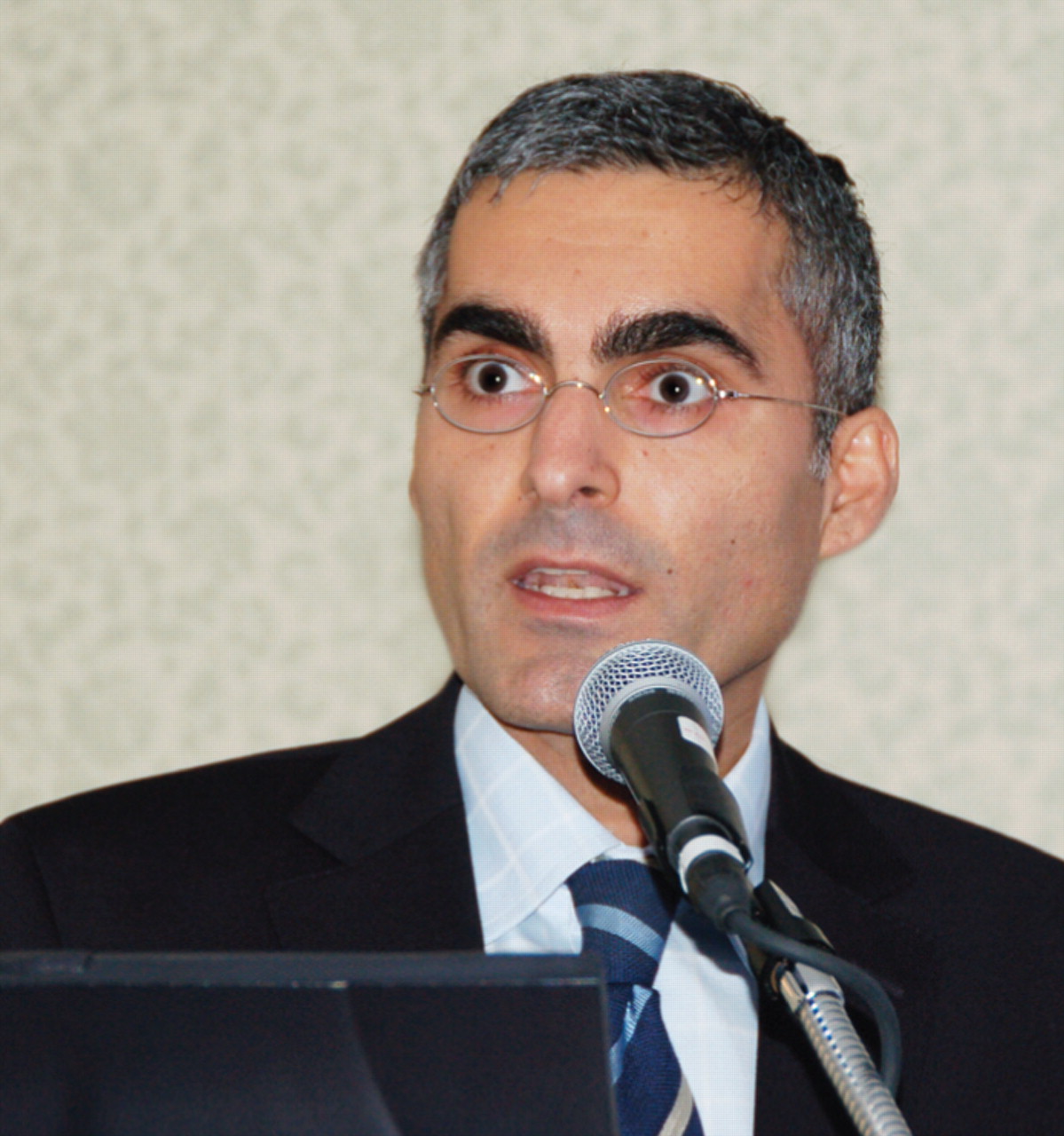Effective Tools Available To Treat Sexual Offenders
Though often difficult, it is possible to reduce the risk of sexual-offending behavior with psychiatric treatment, only through careful assessment, accurate diagnosis, and use of evidence-based treatments.

Fabian Saleh, M.D. recommends the use of testosterone-lowering medications for sexual offenders with pedophilia.
Eve Bender
This was the message delivered by Fabian Saleh, M.D., at the annual meeting of the American Academy of Psychiatry and the Law in Chicago last October. Saleh is medical director of the Sexual Disorders Clinic at UMassMemorial Community Healthlink. He is also an assistant professor of psychiatry in the Law and Psychiatry Program and the Child and Adolescent Psychiatry Division at UMass Memorial Medical Center and director of research at the Baltimore-based National Institute for the Study, Prevention, and Treatment of Sexual Trauma.
The term “sexual offender” is a legal, not medical, construct, he noted, and psychiatrists should use their expertise to determine what may be motivating the sexually deviant behavior and then use evidence-based treatments to reduce the risk of recidivism.
A subcategory of people who have committed sexual crimes may have a type of paraphilia, such as pedophilia, exhibitionism, or voyeurism, he said, noting that paraphilias are underreported psychiatric disorders.
In addition, some people who sexually offend may do so partly due to symptoms of an underlying psychiatric illness such as bipolar disorder, antisocial personality disorder, or attention-deficit/hyperactivity disorder.
Deviant sexual behaviors may also be influenced by the presence of a neuropsychiatric or neurological disorder, such as a brain tumor or lesion, Saleh noted.
“According to the literature, about 10 percent to 20 percent of children have been molested by age 18,” he said. “Although one should not equate child molestation with pedophilia, one can certainly make the argument that a certain percentage of this cohort (that is, child molesters) may have offended because of an underlying paraphilic disorder (that is, pedophilia). Similarly, about 20 percent of adult females have been the targets of people with exhibitionism. These and similar data suggest that a certain percentage of sex offenders may indeed have an underlying paraphilic disorder.”
Aside from reducing the risk for future sexual-offending behavior, the goal of treatment for sexual offenders with comorbid psychiatric illness or paraphilia is to improve their quality of life by decreasing their distress, increasing their autonomy, and reintegrating them into society.
It is possible for people who offend sexually to have more than one type of paraphila, Saleh pointed out, or to have paraphilia and a comorbid psychiatric disorder, often including conduct disorder, attention-deficit/hyperactivity disorder, bipolar disorder, or schizophrenia. The sexual misconduct may be a symptom of an underlying psychiatric or neurological disorder, according to Saleh.
People who commit sexual offenses usually display “global patterns of behavior problems,” Saleh noted, which may manifest themselves through isolated or impulsive problem sexual behaviors such as exposing oneself or time-limited, reactive patterns of oversexualized behavior.
Comprehensive Evaluations Advised
Saleh advises psychiatrists evaluating individuals who have committed sexual offenses to conduct an in-depth assessment for psychiatric problems, neurological disorders, and risk of violence.
When interviewing sexual offenders, psychiatrists should be aware that denial can be a major obstacle, he continued. The interview should include taking a psychosexual history to gather information on deviant and nondeviant sexual behaviors and relationships. Phallometric assessments are often useful in learning more about what factors are involved in the subject's sexual arousal.
Also, psychiatrists should collect collatoral information from a variety of sources, including significant others, police reports, victims, and probation or parole officers.
In addition, Saleh recommends obtaining a complete endocrinological evaluation that includes hormonal and hematological tests.
Saleh noted that cognitive-behavioral therapy (CBT) focusing on prevention of deviant sexual behaviors can also be a useful part of treatment. With regard to sexually deviant behavior, CBT operates on the idea that“ paraphilias are maintained by distorted cognitions and reinforced by masturbation and inappropriate fantasy.” For instance, CBT may be used to challenge distorted thoughts and beliefs surrounding the subject's deviant sexual urges.
Developing strategies that help patients anticipate and resist deviant sexual urges and replacing maladaptive behaviors with more functional behaviors may also be helpful when working with people who have offended sexually.
Trying Behavior Therapy, Medications
Sometimes, Saleh said, behav ioral therapy may be helpful in treating sexual offenders. The goal of the therapy is to extinguish deviant sexual arousal through a set of techniques such as systematic desensitization, aversion therapy, and biofeedback.
When certain symptoms are not ameliorated by psychotherapeutic interventions, or when cravings for deviant sexual acts become overpowering, pharmacotherapy may be indicated, Saleh said.
Testosterone-lowering medications can be helpful in reducing deviant sexual urges, but only appear to do so in people with pedophilia. These include luteinizing hormone-releasing agonists, medroxyporgesterone acetate, and cyproterone acetate. “Antiandrogens and hormone-reducing medications decrease in a very short time the frequency and intensity of symptoms related to pedophilia,” Saleh said.
Selective serotonin-reuptake inhibitors (SSRIs) may be indicated in sexual offenders with a paraphilic disorder and comorbid depression or anxiety because they may cause sexual dysfunction in some patients while ameliorating depression and anxiety symptoms.
However, while there is evidence that SSRIs may cause sexual dysfunction in some who take them, “almost all SSRI-related sexual dysfunction data derive from studies involving male and female patients afflicted with depressive and anxiety disorders and not paraphilias,” Saleh pointed out.
In addition, they may not reduce a person's sexual urges, but simply interfere with sexual arousal and/or orgasm, which wouldn't necessarily stop a sexual offender from reoffending, Saleh noted. That is why he recommended their use only for sexual offenders with anxiety and depression.
“Once we thoroughly assess the subject, it is important to use evidence-based treatment to reduce deviant sexual urges,” Saleh concluded. ▪



